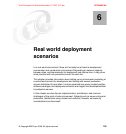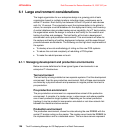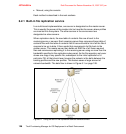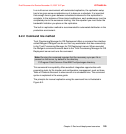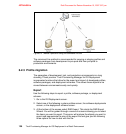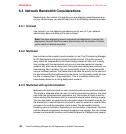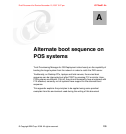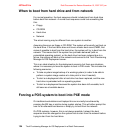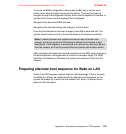
4372ch06.fm Draft Document for Review November 15, 2007 3:27 pm
132 Tivoli Provisioning Manager for OS Deployment in a Retail Environment
6.3 Network Bandwidth Considerations
Depending on the number of computers you are deploying simultaneously and
on your infrastructure, you should select one of the following networking modes:
6.3.1 Unicast
Use unicast if you are deploying computers one by one, or if your network
administrator does not allow you to use multicast.
6.3.2 Multicast
Use multicast without explicit synchronization to use Tivoli Provisioning Manager
for OS Deployment soft-synchronized multicast protocol. Using this protocol,
every client will independently start downloading images at soon as it is ready,
and continue with the deployment as soon as it has downloaded all required
material. But when two or more hosts (using the same deployment scheme) are
downloading files in parallel, they will automatically share the same bandwidth
using a multicast protocol. The fastest client will have the priority for the choice of
the next shared files that will be sent by the server, but the slower clients will also
be able to receive them if they need them. This is a scalable solution that
nevertheless allows for a rolling deployment scenario.
6.3.3 Multicast with synchronization
Multicast with synchronization to use a classical synchronized multicast method.
This mode is adequate when you want to install computers by batches. You must
then enter the synchronization parameters, e.g. the number of hosts to wait for
before starting the download, and the maximum timeout before starting anyway.
You can also select an upper bound to the peak network bandwidth used by the
file downloads. It may be useful to set a limit in case the network is used for other
services or to avoid the saturation of old routers. The bandwidth limitation
boundary value is indicative. Depending on the hardware of the server, the client
and the network components, the exact throughput may change. You can choose
between no bandwidth limitation and limitations down to 2 Megabits per second.
Note: that when deploying several computers simultaneously in unicast, the
deployment time will tend to increase dramatically with the number of clients,
as the result of network saturation




